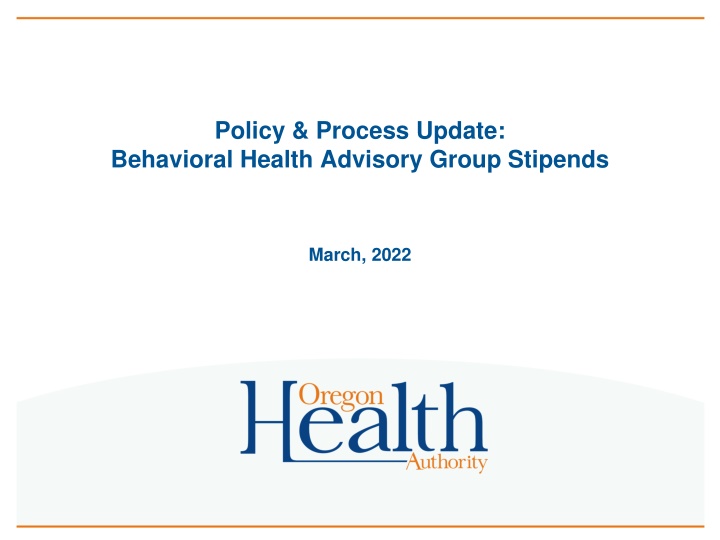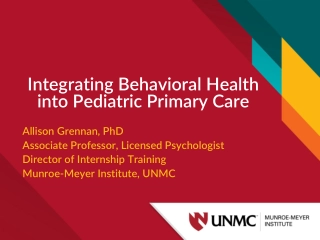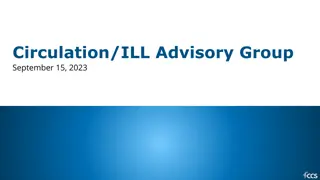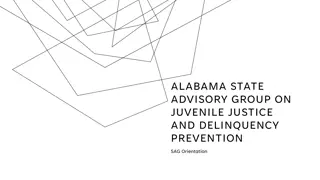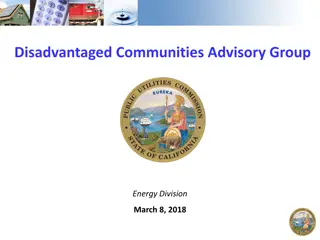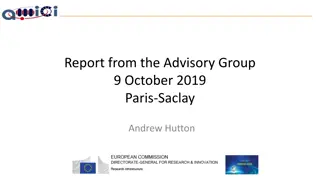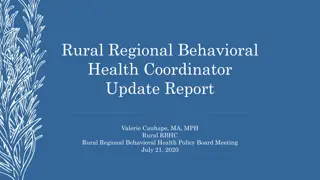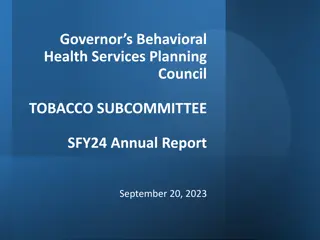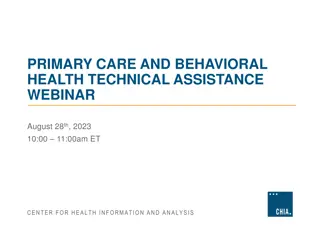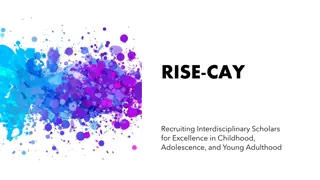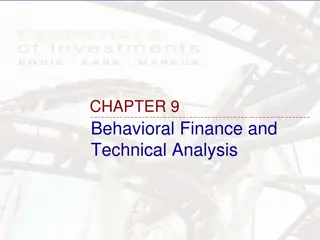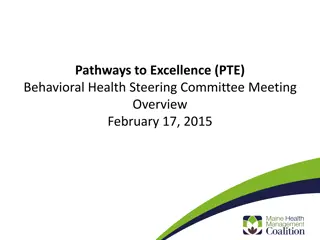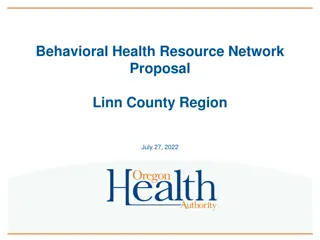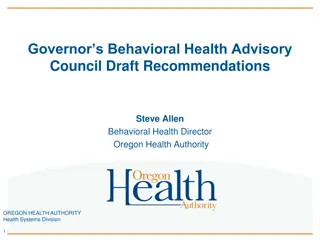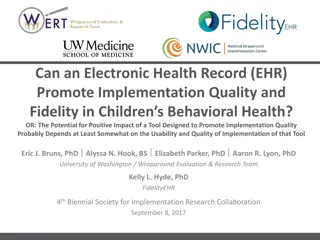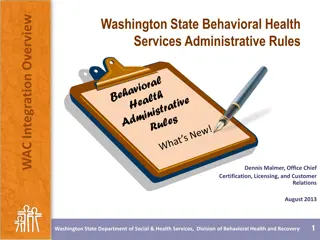Policy & Process Update:Behavioral Health Advisory Group Stipends
Explore the updates on stipends for the Behavioral Health Advisory Group, including details on HB 2992, qualified and non-qualified members, compensation, expenses, and submission processes.
Download Presentation

Please find below an Image/Link to download the presentation.
The content on the website is provided AS IS for your information and personal use only. It may not be sold, licensed, or shared on other websites without obtaining consent from the author.If you encounter any issues during the download, it is possible that the publisher has removed the file from their server.
You are allowed to download the files provided on this website for personal or commercial use, subject to the condition that they are used lawfully. All files are the property of their respective owners.
The content on the website is provided AS IS for your information and personal use only. It may not be sold, licensed, or shared on other websites without obtaining consent from the author.
E N D
Presentation Transcript
Policy & Process Update: Behavioral Health Advisory Group Stipends March, 2022
What will we cover today? Overview of HB 2992 Qualified and non- qualified members Dual Lucrative Offices A note about taxes How to submit a stipend claim Payment process and timelines Ways to ensure timely payment 2
About House Bill 2992 Passed during 2021 Legislative Session. Amended ORS 292.495 and went into effect on September 25, 2021. Intended to reduce barriers to public participation in state boards and commissions. Made changes to who is entitled to compensation and the amount to which they are entitled. People serving on state boards and commissions fall into two categories qualified members and non- qualified members. 3
Qualified Members Not in full-time public service Local, state, regional, or federal government employees Employees of public universities Meet income requirements Adjusted gross income in the previous tax year of less than $50,000, as reported on an income tax return other than a joint income tax return Adjusted gross income in the previous tax year of less than $100,000, as reported on a joint income tax return. 4
Qualified members, Continued State boards and commissions are required to: Compensate qualified members at a per-diem rate equivalent to that received by members of the state Legislative Assembly. Reimburse qualified members for actual and necessary travel and other expenses. Otherwise-qualified members who are employed in full-time public service may not receive compensation but are entitled to receive expense reimbursement. Members may decline compensation and / or expense reimbursement. 5
Non-qualified Members Eligibility for compensation andexpense reimbursement depends on the regulations governing each board or commission. Non-qualified members are eligible for compensation if: Member is not employed in full-time public service, and Funds are available in the council or committee s budget, and The member is authorized by law to receive such compensation. Expense reimbursement is optional for non-qualified members, including those in full-time public service. Members may decline compensation and / or expense reimbursement. 6
Dual Lucrative Offices Article II, Section 10 of the Oregon constitution forbids people from holding what is known as dual lucrative offices. Some board and commissions are considered lucrative, some are not. If you are a member of more than one board or commission, notify OHA and your situation will be evaluated on a case-by-case basis. 7
A note about taxes Compensation is considered taxable income 1099 statement or W-2 will be provided annually For advice about your specific situation, please consult a tax professional and / or appropriate benefits program 8
To submit a stipend claim Complete & submit Compensation Self-Attestation Form once per tax year Complete & submit I-9 form Complete & submit monthly stipend invoice form Direct deposit is available if desired 9
DAS Self- Attestation Form Submitted annually For tax filing year, not calendar year Submit to OHA staff person who collects your monthly invoices 10
Stipend Invoice Fill in all highlighted sections Be sure to include vendor number Remember to initial at the bottom Submit to OHA staff person listed on form 11
Direct Deposit This is optional Fill out form and return by secure email to: DHSOHA.ProvDirDep@d hsoha.state.or.us, or Fax to 503-945-6860, or Send by mail to: Department of Human Services/Oregon Health Authority Office of Financial Services/Attn: EFT Coordinator 500 Summer St. NE, E-97 Salem, OR 97301-1080 Retain a copy for your records 12
Typical payment process and timelines Invoice sent to Office of Financial Services Invoice processed by OHA staff Up to 7 business days* Invoice processed by OFS Up to 10 business days* Forms submitted to committee support staff Payment issued by check or direct deposit * Processing times may be longer during the COVID-19 response 13
Ways to ensure timely payment Be sure invoice is filled out completely and accurately Include vendor number Double check that all meeting dates are correct Be sure to initial the bottom of the form Submit to your group s support staff after the end of each month Sign up for direct deposit if possible If you haven t received direct deposit within 15 business days of submitting your form, or a paper check within 18 business days of submitting your form, reach out to your support staff for follow up. 14
For more information Reach out to your committee or council support staff ORS 292.495, Compensation and expenses of members of state boards and commissions: https://www.oregonlegislature.gov/bills_laws/ors/ors292.html 15
